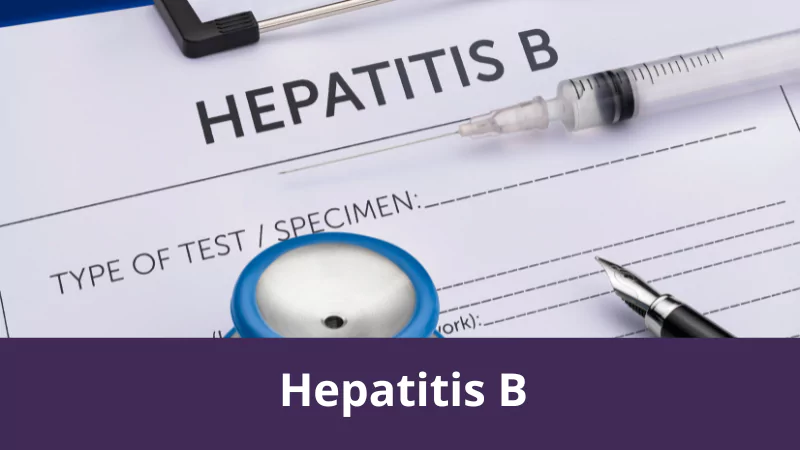What is Hepatitis B?
Hepatitis B is a liver infection caused by the Hepatitis B virus (HBV). Hepatitis B is transmitted when blood, semen, or another body fluid from a person infected with the Hepatitis B virus enters the body of someone who is not infected. This can happen through sexual contact; sharing needles, syringes, or other drug-injection equipment; or from mother to baby at birth.
For some people, hepatitis B is an acute, or short-term, illness but for others, it can become a long-term, chronic infection. Risk for chronic infection is related to age at infection: approximately 90% of infected infants become chronically infected, compared with 2%–6% of adults. Chronic Hepatitis B can lead to serious health issues, like cirrhosis or liver cancer. The best way to prevent Hepatitis B is by getting vaccinated.
Symptoms
Many people with hepatitis B won’t experience any symptoms and may fight off the virus without realising they had it.
If symptoms do develop, they tend to occur two or three months after exposure to the hepatitis B virus.
Symptoms of hepatitis B include:
- flu-like symptoms, including tiredness, a fever, and general aches and pains
- loss of appetite
- feeling and being sick
- diarrhoea
- tummy (abdominal) pain
- yellowing of the skin and eyes (jaundice)
These symptoms will usually pass within one to three months (acute hepatitis B), although occasionally the infection can last for six months or more (chronic hepatitis B).
How do you get infected?
Hepatitis B can be spread by:
- a mother to their newborn baby, particularly in countries where the infection is common
- injecting drugs and sharing needles and other drug equipment, such as spoons and filters
- having sex with an infected person without using a condom
- having a tattoo, body piercing, or medical or dental treatment in an unhygienic environment with unsterilised equipment
- having a blood transfusion in a country where blood isn’t tested for hepatitis B – all blood donations in the UK are now tested for the infection
- sharing toothbrushes or razors contaminated with infected blood
- the skin being accidentally punctured by a used needle (needle stick injury) – this is mainly a risk for healthcare workers
- the blood of someone with hepatitis B getting into an open wound, cut, or scratch – in rare cases, being bitten by someone with hepatitis B can also spread the infection
Hepatitis B isn’t spread by kissing, holding hands, hugging, coughing, sneezing, or sharing crockery and utensils.
Who are at risk?
People at highest risk of hepatitis B include:
- people born or brought up in a country where the infection is common
- babies born to mothers infected with hepatitis B
- people who have ever injected drugs
- anyone who has had unprotected sex, including anal or oral sex – particularly people who’ve had multiple sexual partners, people who’ve had sex with someone in or from a high-risk area, men who have sex with men, and commercial sex workers
- close contacts, such as family members, of someone with long-term (chronic) hepatitis B infection
The risk of getting hepatitis B for travellers going to places where the infection is common is generally considered to be low if the activities mentioned above are avoided.
High Risk Areas
Hepatitis B is found throughout the world, but is particularly common in:
- sub-Saharan Africa
- east and southeast Asia
- the Pacific Islands
- parts of South America
- southern parts of eastern and central Europe
- the Middle East
- the Indian subcontinent
How do you prevent Hepatitis B infection?
A vaccine that offers protection against hepatitis B is available for people at high risk of the infection.
This includes:
- babies born to infected mothers
- close family and sexual partners of someone with hepatitis B
- people travelling to or from a part of the world where hepatitis B is widespread, such as sub-Saharan Africa, east and southeast Asia, and the Pacific Islands
- people who inject drugs or have a sexual partner who injects drugs
- people who change their sexual partner frequently
- men who have sex with men









